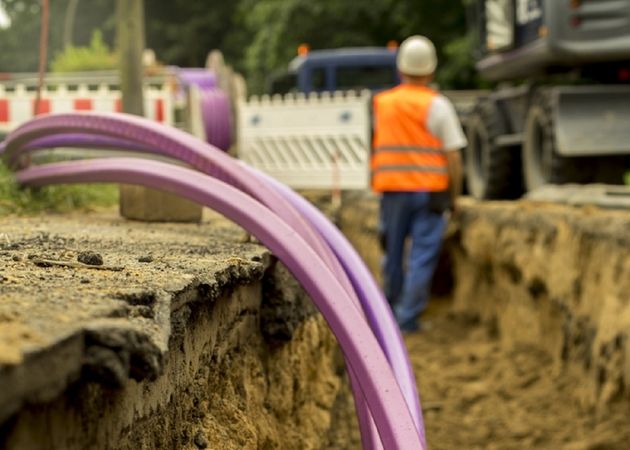Very high speed broadband: UFC-What to Choose denounces the agreement between Orange and the government


President of the UFC-Que Choisir consumer association, Marie-Amandine Stévenin does not have harsh enough words to criticize the agreement recently reached between the State and Orange. In a free forum, she believes that he “ “a virtual renunciation by the government that all consumers have optical fiber by the end of 2025”.
While the pace of fiber deployment is slowing down”from ominously, and has even almost collapsed in the big cities “, this agreement sends, according to her, a very bad signal while the national strategy, enacted by the President of the Republic, plans to achieve the generalization of fiber by the end of 2025.
As a reminder, Orange has recently committed to Jean-Noël Barrot, Minister of digital transition, to achieve, by the end of 2025, 98.5% of fiber optic deployments in medium-density areas (AMII), compared to 88% today. In very dense areas, the incumbent operator has signed up for a deployment rate of 96%, still on the same deadline, compared to 91.8% today, all operators combined. This corresponds to 1.2 million homes to be connected in addition in the first case and to some 300,000 homes in the second.
Will the incumbent keep his word this time?
If this “deal” constitutes an advance, we are far from the 100% coverage rate. In its defense, Orange reminds through the voice of its new general manager of Orange France, Jean-François Fallacher, that the last fiber connections will be the most complex. They will require civil engineering works, some of which will be borne by the subscriber to get the fiber to his home.
Doubting the operator’s word, Marie-Amandine Stévenin recalls that he already has a precedent. Orange had to cover 100% of the intermediate areas – that is, the territories between very dense areas and the most rural areas, which correspond to a third of households – by the end of 2022 at the latest,” only about 90% have actually been. »
Despite this failure to fulfill its commitment in these so-called AMII zones (Call for expression of investment intention), the operator has not been sanctioned by the government, she regrets. The president of UFC-Que Choisir, however, forgets to specify that Orange, on the other hand, received a sanction of 26 million euros by Arcep, the telecom regulator.
A boost to Orange’s satellite offer?
Marie-Amandine Stévenin notes that, ” randomness of the calendar “, Orange has just marketed a new satellite internet access offer by aiming ” households that do not have a good wired internet connection ». « Does this mean that by being less demanding with Orange on fiber optic coverage, the government is also giving it the gift of giving it a “market” to market an expensive satellite offer? », she asks.
“Rather than negotiating falsely ambitious agreements with Orange, the government would do better to allow all consumers to benefit from a real enforceable right to superfast broadband, long requested by the UFC-What To Choose”, continues Marie-Amandine Stévenin. It should be noted that Jean-Noël Barrot also mentioned, a year ago, the possibility of universal access to very high speed broadband for all, at “ an affordable price ” and with a guaranteed speed of 30 Mb/s.
The quality of service taken in default
Finally, the tribune points the finger at the quality of service in the deployment of fiber. Despite the commitments of the operators in this area,” the situation has not improved on the ground”. The number of disputes related to fiber connection, reported to the UFC-What To Choose, has even increased by 64% in one year.
In this context, Marie-Amandine Stévenin salutes ” concrete progress for consumers ” from the bill of Senator Patrick Chaize (LR). The latter tackles the malfunctions of fiber optic connections and proposes new rights to users such as the right to terminate without charge in the event of connection failure or the right to compensation in the event of service interruption.
Adopted in May by the Senate, this bill has not yet been put on the agenda of the National Assembly notes the Context website. Popular with local authorities, it has mixed support from the government and Arcep. The operators are up in arms against this text which would call into question nothing more or less the success of the France Very High Speed plan.








